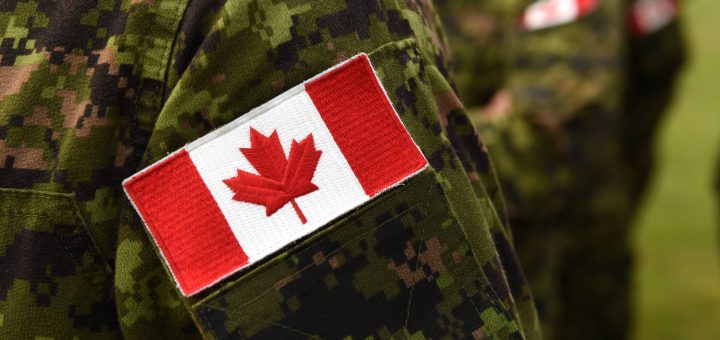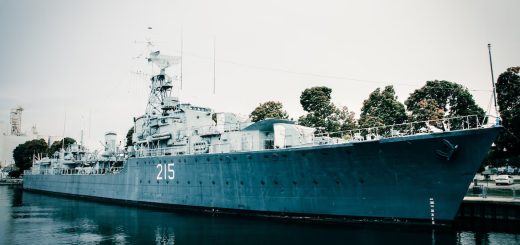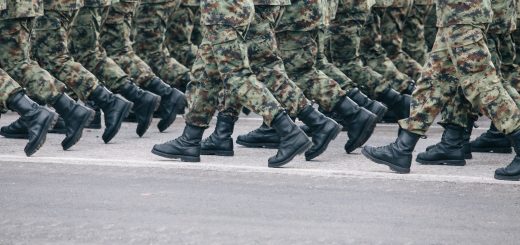R v Stillman: Military Members Have No Right to Jury Trials, SCC Finds

In R v Stillman, 2019 SCC 40, the Supreme Court of Canada (“SCC”) decided that allowing members of the Armed Forces to be tried by a military tribunal without access to a jury, regardless of whether their offence was related to their military service, does not violate the Canadian Charter of Rights and Freedoms’ (“Charter”). In doing so, the SCC majority undermined Charter protections for members of the military and for the community at large.
Factual Background & Legal Framework
While most of the Canadian justice system is conducted through civilian courts, a separate military justice system also operates alongside the civilian justice system. The military justice system is “[t]ailored to the unique needs of the Armed Forces,” and was designed to “meet the unique needs of the military with respect to discipline, efficiency, and morale” (Stillman, para 36). The military justice system is different from the civilian justice system in many ways; one key difference is that there is no trial by jury provided, unlike in civilian courts (Stillman, para 5). While s. 11(f) of the Charter generally protects the right to a trial by jury for serious criminal offences, there is an exception built into the text of the Charter for “offence[s] under military law tried before a military tribunal.”
In Stillman, several members of the Armed Forces were charged with criminal or civil offences, including sexual assault and forgery (Stillman, para 5). Under s. 130(1)(a) of the National Defence Act, RSC 1985, c. N-5 (“NDA”), their offences, like any criminal or civil offences committed by Armed Forces members, were also considered “service offences” under the Armed Forces’ Code of Service Discipline (“CSD”) (Stillman, para 3). Essentially, for Armed Forces members, “s. 130(1)(a) transforms ordinary civil offences…into service offences, thereby giving service tribunals concurrent jurisdiction over such offences” (Stillman, para 59). Because the individuals in Stillman were to be tried before military tribunals, they would not have had access to juries. Dissatisfied with this, they brought a challenge to s. 130(1)(a) of the NDA on the basis of s. 11(f) of the Charter, culminating in an appeal to the SCC.
The SCC was asked to consider whether s. 130(1)(a) of the NDA violated s. 11(f) of the Charter by allowing offences unrelated to military service but committed by Armed Forces members to be tried without access to a jury (Stillman, para 5). The accused argued that the s. 11(f) exception for “offence[s] under military law” should only extend to military offences explicitly listed in the NDA, such as spying for the enemy, mutiny with violence, and insubordination (Stillman, para 6). The Crown, however, submitted that all service offences should be considered “offence[s] under military law” (Stillman, para 7).
SCC Majority Opinion
Writing for the majority, Justices Moldaver and Brown endorsed the Crown’s position, holding that the military exception applies to all service offences, and is not restricted to just the explicitly military offences listed in the NDA. They explained that according to previous SCC jurisprudence, “the transformation of ordinary civil offences into service offences [was] a valid exercise of Parliament’s legislative authority over ‘Militia, Military and Naval Service, and Defence’ conferred by s. 91(7) of the Constitution Act, 1867)” (Stillman, para 75; MacKay v The Queen, 1980 2 SCR 370). Because service offences were a validly enacted part of the NDA, and offences contained in the NDA “have always been understood as offences under ‘military law,’ service offences must fall within military law (Stillman, para 76). Thus, according to the majority, a service offence arising from an ordinary civil offence unrelated to the accused’s military service “is no less a part of ‘military law’ than a service offence arising from spying for the enemy, mutiny, insubordination, or any other service offence prohibited by the CSD” (Stillman, para 76).
After establishing their view of the military exception, the SCC majority analyzed two other interpretations suggested. First, the majority concluded that the accused’s argument that “offence[s] under military law” are only those specifically set out in the NDA is “not supported by the text of s. 11(f)” (Stillman, para 84). If this was the intended interpretation of s. 11(f), they argue, the text would have reflected this more explicitly, such as by stating “except for those offences which are exclusively under military jurisdiction” (Stillman, para 84). Without this clear limiting language, the majority found that the wording of s. 11(f) would not support the accused persons’ proposed interpretation.
While not advanced by either party, the SCC majority also considered whether there should be a “military nexus” requirement in order to engage the s. 11(f) exception (Stillman, para 88). To address this, the majority referred to R v Moriarity, 2015 SCC 55, in which the Court held that s. 130(1)(a) of the NDA was not overbroad under s. 7 of the Charter. In Moriarity, four servicemen had argued that trying their ordinary civil offences as service offences violated their s. 7 rights because “the service offences with which they had been charged were committed in circumstances that had no ‘direct link’ to discipline, efficiency, or morale in the military” (Stillman, para 92). However, the SCC did not agree, writing that “the objective of maintaining ‘discipline, efficiency, and morale’ is rationally connected to dealing with criminal actions committed by members of the military even when not occurring in military circumstances” (Moriarity, para 51).
Based on this conclusion in Moriarity and the above conclusions from MacKay that s. 130(1)(a) was validly enacted under s. 91(7) of the Constitution Act, 1867, the SCC held that a military nexus requirement is not necessary for properly interpreting s. 11(f). They explained that if s. 130(1)(a) contained offences that were not truly “offence[s] under military law,” then the provision “would necessarily be either ultra vires of Parliament, overbroad, or both” (Stillman, para 97). However, since Moriarity established the provision was not overbroad, and MacKay confirmed that enacting the provision was within Parliament’s legislative authority, the SCC majority concluded that all offences captured by this provision must be “offence[s] under military law,” so no military nexus requirement was necessary. For this reason, along with other considerations like unduly burdening military tribunals with threshold inquiries (Stillman, para 99), the SCC majority rejected the imposition of a military nexus requirement for the military exception in s. 11(f).
Thus, the SCC majority held that service offences, which transform ordinary civil offences committed by service members into military offences, qualify as “offence[s] under military law” according to s. 11(f) of the Charter. They concluded that “s. 130(1)(a) of the NDA is not inconsistent with s. 11(f) of the Charter, as it does not deprive a person who is lawfully entitled to a trial by jury of that right” (Stillman, para 113).
SCC Dissenting Opinion
Justices Karakatsanis and Rowe did not agree with the majority’s interpretation, and instead endorsed a version of the military nexus requirement rejected by the majority, writing that “s. 130(1)(a) only falls within the scope of the exception to the extent that there is a direct connection between the circumstances of the offence and the military” (Stillman, para 119).
In their view, the majority opinion failed to “give sufficient effect to either the individual or societal interests in the right to a jury trial” (Stillman, para 120). Given both the “accused’s interest in a trial by jury and the community’s interest in participating in the prosecution of serious offences,” the minority held that in order to adhere to s. 11(f), “the offence or the circumstances in which it was committed must have a military connection” (Stillman, para 176). In their view, an “offence under military law” refers to “an offence that is connected to the military in its nature or committed in circumstances sufficiently connected to the military that would directly affect discipline, efficiency and morale” (Stillman, para 176). Without this military connection, the minority held that “s. 130(1)(a) of the NDA violates the right to a jury trial” (Stillman, para 176).
As part of refuting the majority opinion, the dissenting justices challenged the conclusions the majority drew from Moriarity and MacKay, holding that just because the provision had been found to be intra vires and not overbroad, it is not necessarily constitutional. They explained that “[o]verbreadth and legislative competence are not the only guides to defining the meaning of s. 11(f)” (Stillman, para 121), and are not “the only limits on Parliament’s power (Stillman, para 145). Specifically, they held that “the finding in Moriarity that s. 130(1)(a) of the NDA did not violate s. 7 for overbreadth does not answer the question of whether the provision violates s. 11(f)….A provision may pass constitutional muster under the overbreadth prong of s. 7 but still violate other legal rights in the Charter” (Stillman, para 134). Further, they contended that the provision being intra vires was not sufficient to end constitutional scrutiny, writing that “while Parliament may have authority to exact legislation under any given head of power, it does not follow that this authority immunizes its legislative enactments from Charter review” (Stillman, para 147).
Ultimately, the minority concluded that a military connection requirement would best give effect to both the protections offered by s. 11(f) and its exception, and concluded that reading in was the appropriate remedy, such that s. 130(1)(a) of the NDA should define service offences as “an act or omission committed by a service member that is military in nature or committed in circumstances directly connected to the military” (Stillman, para 193).
Analysis
While both the majority and minority present compelling theoretical legal reasons to support their interpretation of the s. 11(f) exception, only the minority decision truly grapples with the importance of s. 11(f) protection and its purpose in both protecting both the accused person’s rights, and the community’s interest in participation in the justice system.
Given the significant importance of jury trials, the majority decision is troubling because it deprives members of the Armed Forces of the right to a jury trial simply because of their military status, regardless of whether their offence was related to their military service. The right to a jury trial has been called by the SCC “one of the cornerstones of our criminal justice system” (R v Kokopenace, 2015 SCC 28), a “bulwark of individual liberty,” (R v Turpin, [1989] 1 SCR 1296), and the “final bulwark against oppressive laws or their enforcement” (R v Sherratt, [1991] 1 SCR 509). Because of the vital role that juries play, and particularly given their role in protecting accused persons from injustice and wrongful conviction, it is concerning that Stillman affirms that certain accused persons may be deprived of their rights simply because of their membership in the military.
In addition to the legal concerns this case raises, there are also practical concerns that have been raised about the capacity of military tribunals to adequately respond to allegations of sexual assault in particular. Colonel-Maitre Michel Drapeau wrote in 2018 that “the armed forces and the military justice system have shown to be an improper venue for the investigation and prosecution of military sexual assault crimes.” The dissent echoed this concern for the “deficiencies in sexual assault prosecutions in the military justice system” (Stillman, para 181). As the dissent pointed out, juries ensure that the community’s interests are represented in the justice system (Stillman, paras 137-138). By broadening the scope of the military exemption under s. 11(f), Stillman limits the ways in which juries can also function to hold wrongdoers accountable in cases of sexual assault, in ways that evidently, the military justice system has not always done.
Jury trials may thus provide important safeguards both for ensuring the rights of the accused are fully realized, and for ensuring that serious offences like sexual assault are treated with the proper degree of gravity. By firmly establishing that all service offences can be tried without a jury, regardless of military connection, Stillman undermines both of these essential functions that s. 11(f) was designed to facilitate.








Join the conversation